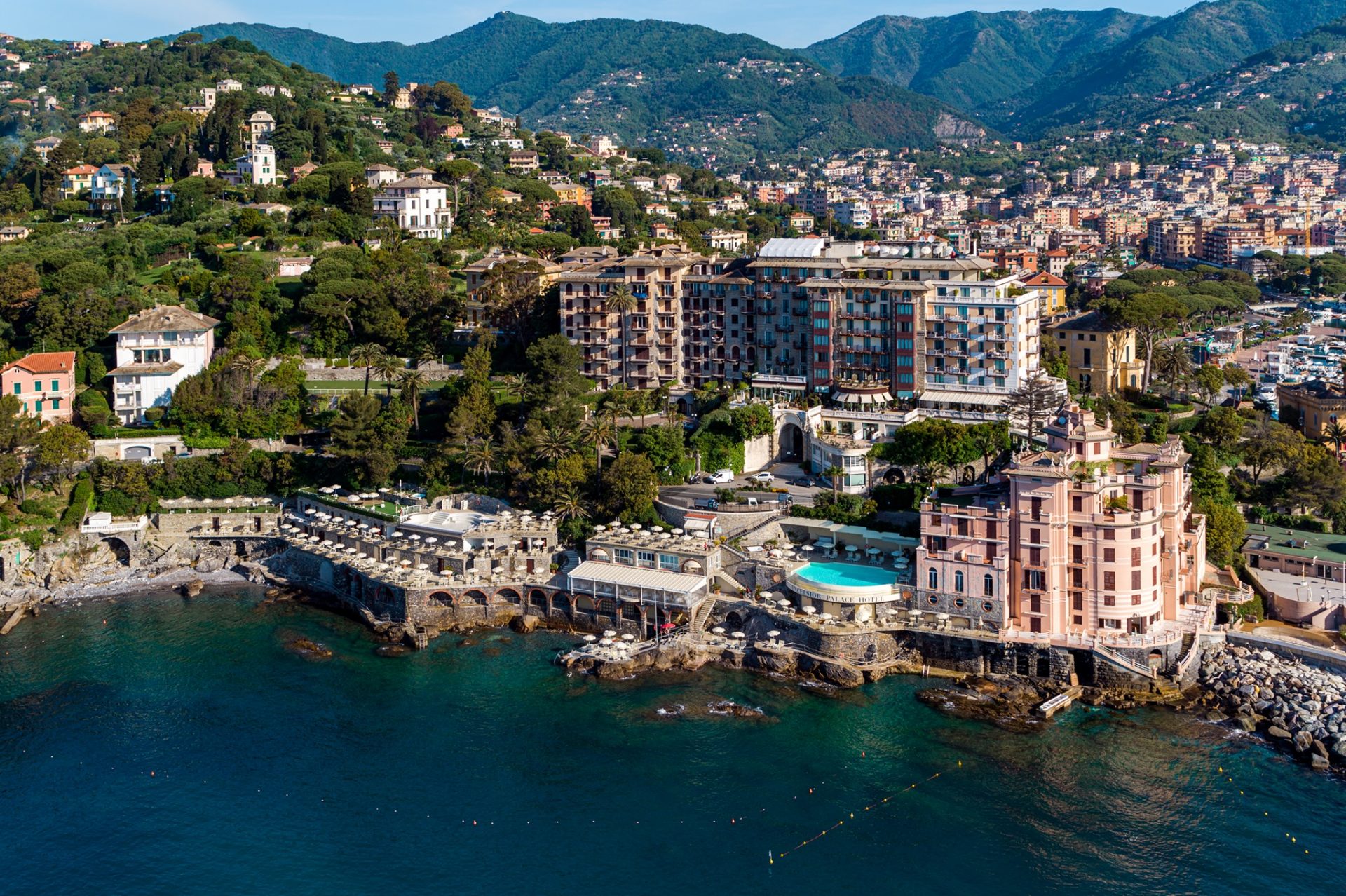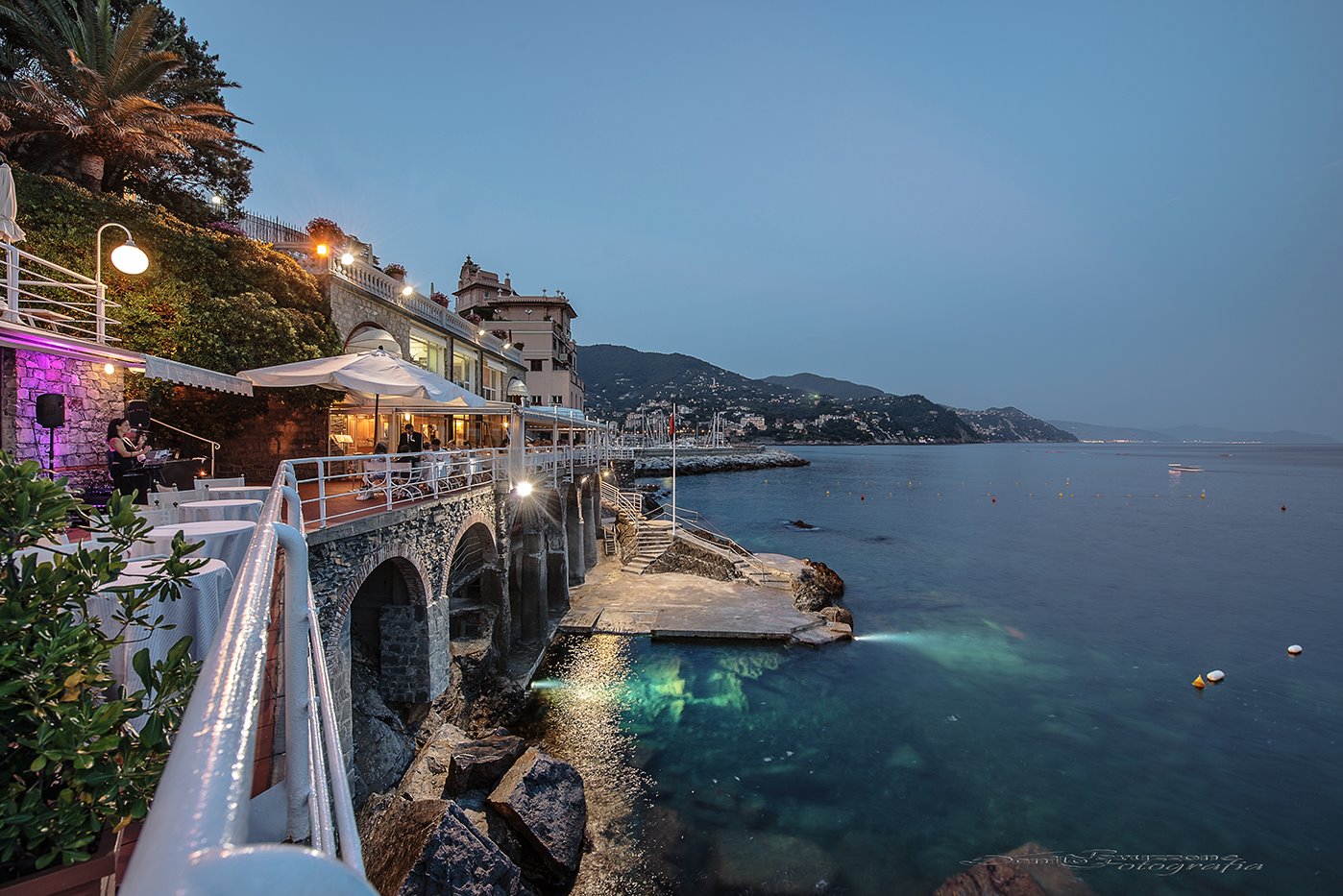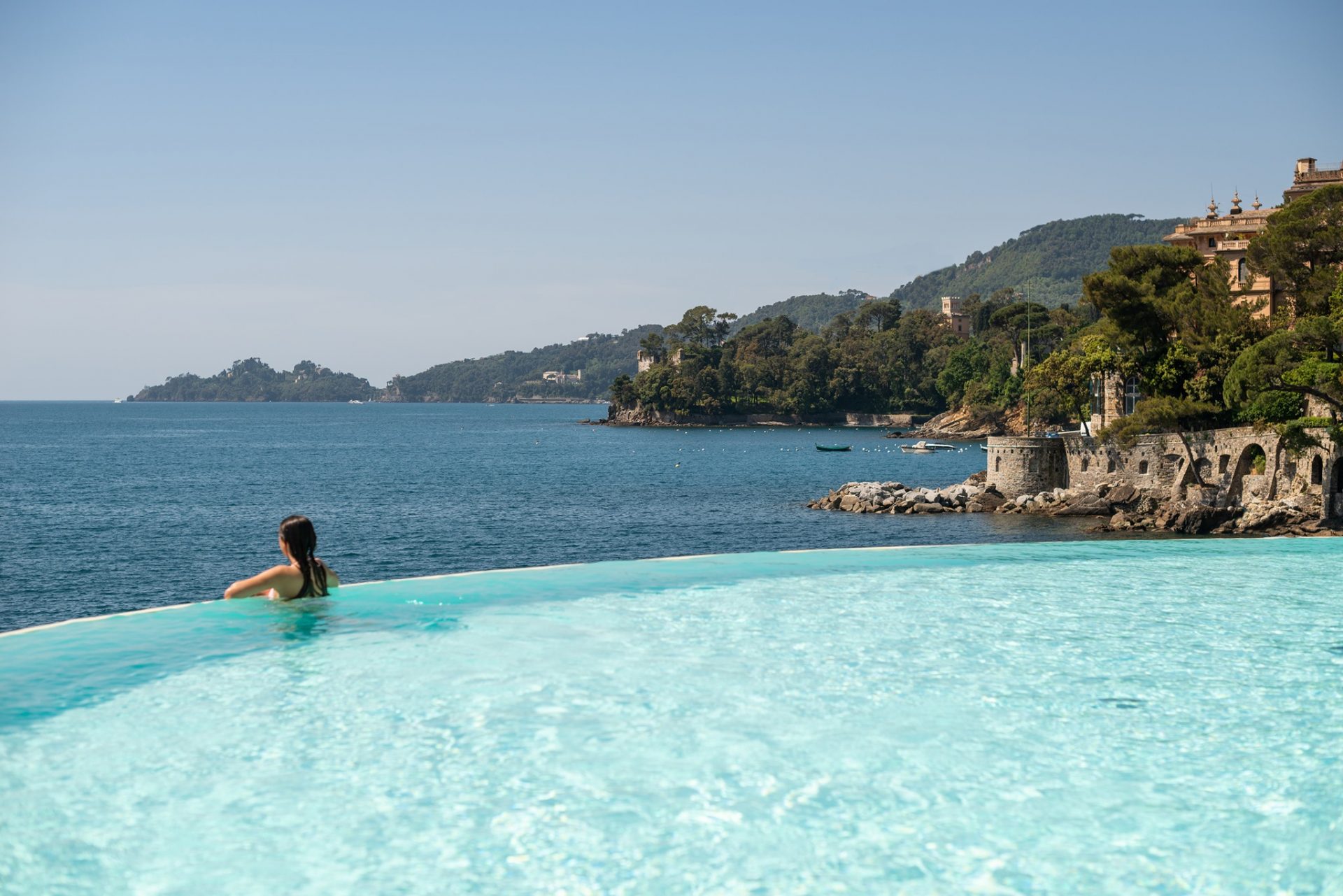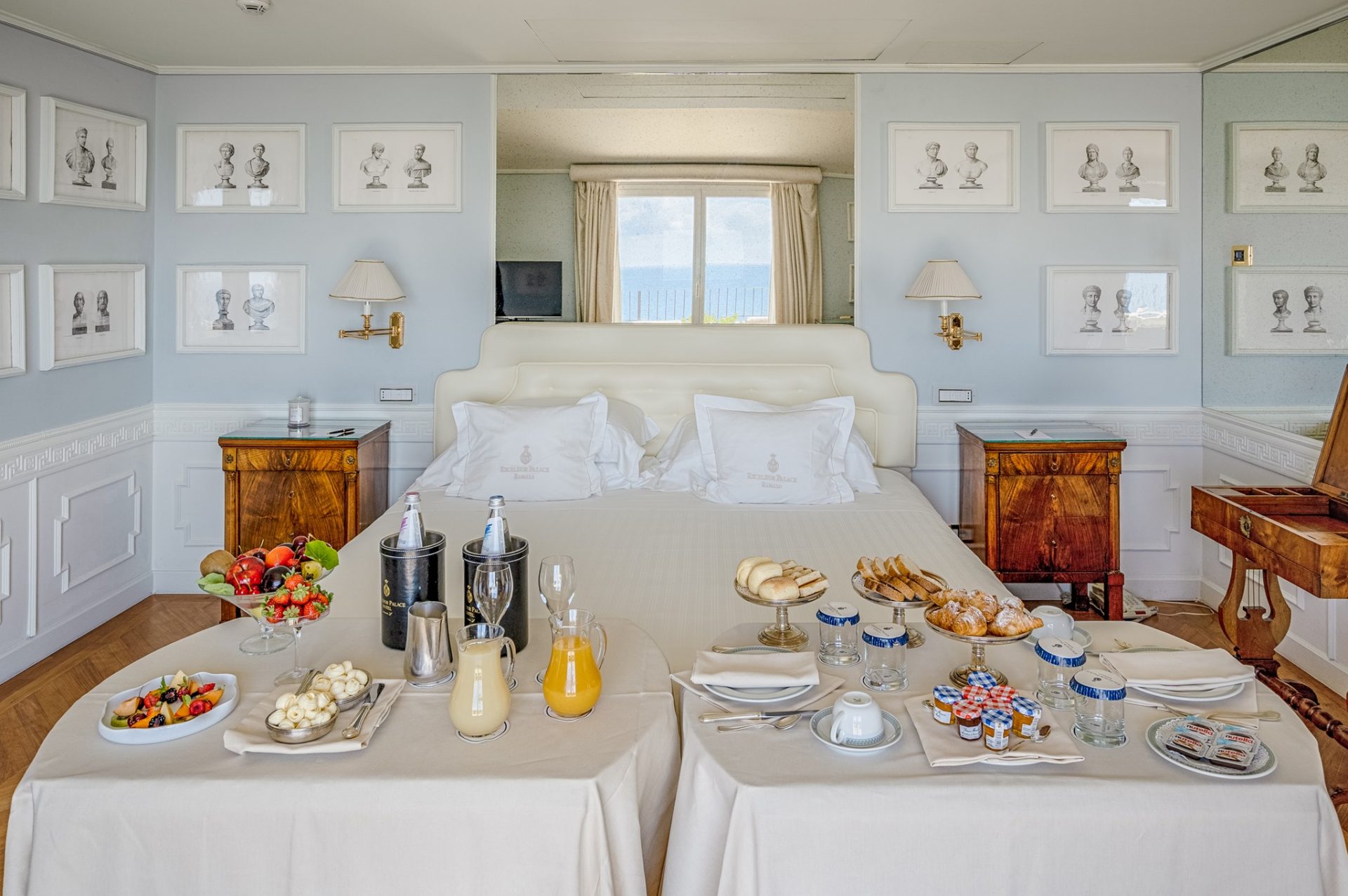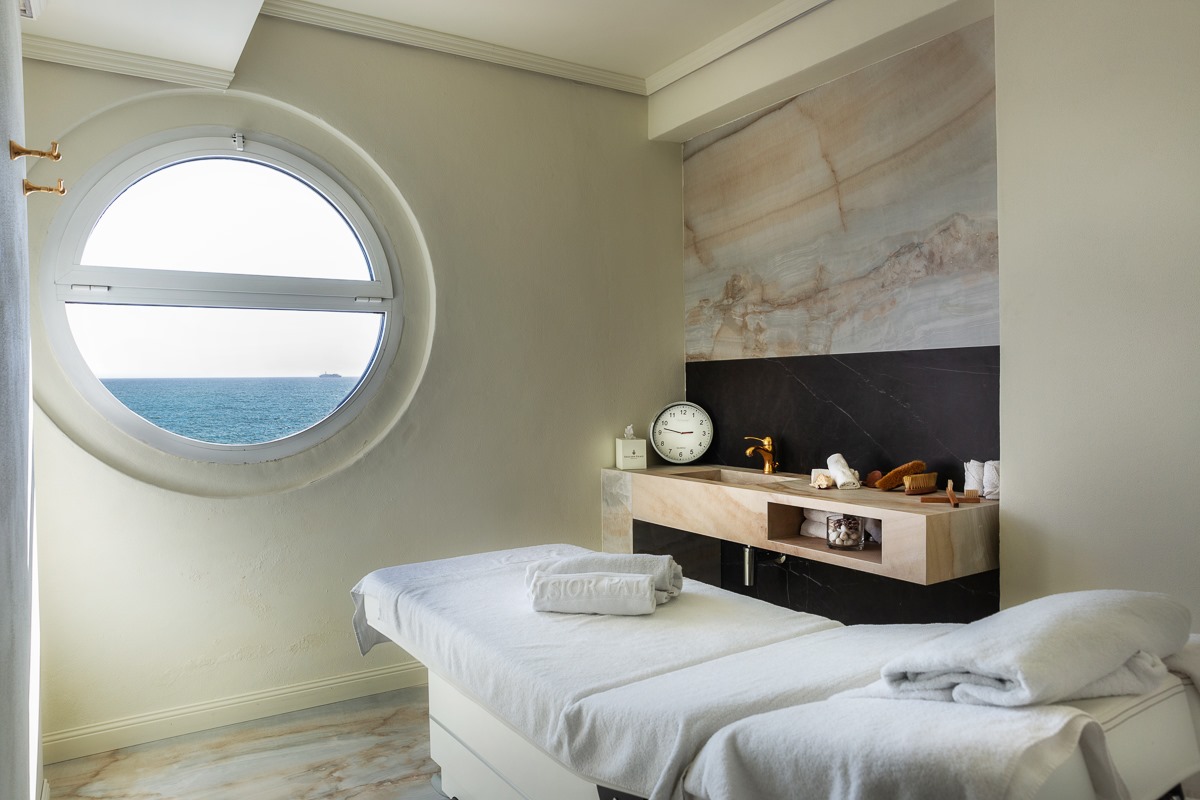EXCELSIOR PALACE HOTEL
Excelsior Palace Hotel in Rapallo is the only 5-star luxury hotel on the Portofino Coast. Located in a privileged position, 2km from Santa Margherita Ligure, facing east on the bay of Rapallo and west on the coast of Portofino.
Since the early 1900s it has been the symbol of the “Dolce vita”, which has conquered the international elite, thanks to its natural beauty and its legendary art of hospitality.
Genoa
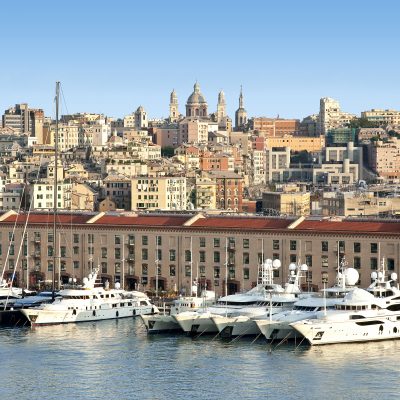
Genoa (/ˈdʒɛnoʊə/ JEN-oh-ə; Italian: Genova [ˈdʒɛːnova] (audio speaker iconlisten), locally [ˈdʒeːnova]; Ligurian: Zêna [ˈzeːna]; English, historically, and Latin: Genua) is the capital of the Italian region of Liguria and the sixth-largest city in Italy. In 2015, 594,733 people lived within the city's administrative limits.[3] As of the 2011 Italian census, the Province of Genoa, which in 2015 became the Metropolitan City of Genoa,[4] had 855,834 resident persons.[5] Over 1.5 million people live in the wider metropolitan area stretching along the Italian Riviera.[6]
On the Gulf of Genoa in the Ligurian Sea, Genoa has historically been one of the most important ports on the Mediterranean: it is currently the busiest in Italy and in the Mediterranean Sea and twelfth-busiest in the European Union.[7][8]
Genoa was the capital of one of the most powerful maritime republics for over seven centuries, from the 11th century to 1797.[9] Particularly from the 12th century to the 15th century, the city played a leading role in the commercial trade in Europe, becoming one of the largest naval powers of the continent and considered among the wealthiest cities in the world.[10][11] It was also nicknamed la Superba ("the proud one") by Petrarch due to its glories on the seas and impressive landmarks.[12]
The city has hosted massive shipyards and steelworks since the 19th century, and its solid financial sector dates back to the Middle Ages. The Bank of Saint George, founded in 1407, is the oldest known state deposit bank in the world and has played an important role in the city's prosperity since the middle of the 15th century.[13][14]
The historical center, also known as old town, of Genoa is one of the largest and most-densely populated in Europe.[15] Part of it was also inscribed on the World Heritage List (UNESCO) in 2006 as Genoa: Le Strade Nuove and the system of the Palazzi dei Rolli. Genoa's historical city centre is also known for its narrow lanes and streets that the locals call "caruggi".[16]
Genoa is also home to the University of Genoa, which has a history going back to the 15th century, when it was known as Genuense Athenaeum. The city's rich cultural history in art, music and cuisine allowed it to become the 2004 European Capital of Culture. It is the birthplace of Guglielmo Embriaco, Christopher Columbus, Andrea Doria, Niccolò Paganini, Giuseppe Mazzini, Renzo Piano and Grimaldo Canella, founder of the House of Grimaldi, among others
Culture and history info
Genoa (/ˈdʒɛnoʊə/ JEN-oh-ə; Italian: Genova [ˈdʒɛːnova] (audio speaker iconlisten), locally [ˈdʒeːnova]; Ligurian: Zêna [ˈzeːna]; English, historically, and Latin: Genua) is the capital of the Italian region of Liguria and the sixth-largest city in Italy. In 2015, 594,733 people lived within the city's administrative limits.[3] As of the 2011 Italian census, the Province of Genoa, which in 2015 became the Metropolitan City of Genoa,[4] had 855,834 resident persons.[5] Over 1.5 million people live in the wider metropolitan area stretching along the Italian Riviera.[6]
On the Gulf of Genoa in the Ligurian Sea, Genoa has historically been one of the most important ports on the Mediterranean: it is currently the busiest in Italy and in the Mediterranean Sea and twelfth-busiest in the European Union.[7][8]
Genoa was the capital of one of the most powerful maritime republics for over seven centuries, from the 11th century to 1797.[9] Particularly from the 12th century to the 15th century, the city played a leading role in the commercial trade in Europe, becoming one of the largest naval powers of the continent and considered among the wealthiest cities in the world.[10][11] It was also nicknamed la Superba ("the proud one") by Petrarch due to its glories on the seas and impressive landmarks.[12]
The city has hosted massive shipyards and steelworks since the 19th century, and its solid financial sector dates back to the Middle Ages. The Bank of Saint George, founded in 1407, is the oldest known state deposit bank in the world and has played an important role in the city's prosperity since the middle of the 15th century.[13][14]
The historical center, also known as old town, of Genoa is one of the largest and most-densely populated in Europe.[15] Part of it was also inscribed on the World Heritage List (UNESCO) in 2006 as Genoa: Le Strade Nuove and the system of the Palazzi dei Rolli. Genoa's historical city centre is also known for its narrow lanes and streets that the locals call "caruggi".[16]
Genoa is also home to the University of Genoa, which has a history going back to the 15th century, when it was known as Genuense Athenaeum. The city's rich cultural history in art, music and cuisine allowed it to become the 2004 European Capital of Culture. It is the birthplace of Guglielmo Embriaco, Christopher Columbus, Andrea Doria, Niccolò Paganini, Giuseppe Mazzini, Renzo Piano and Grimaldo Canella, founder of the House of Grimaldi, among others.
Read more

